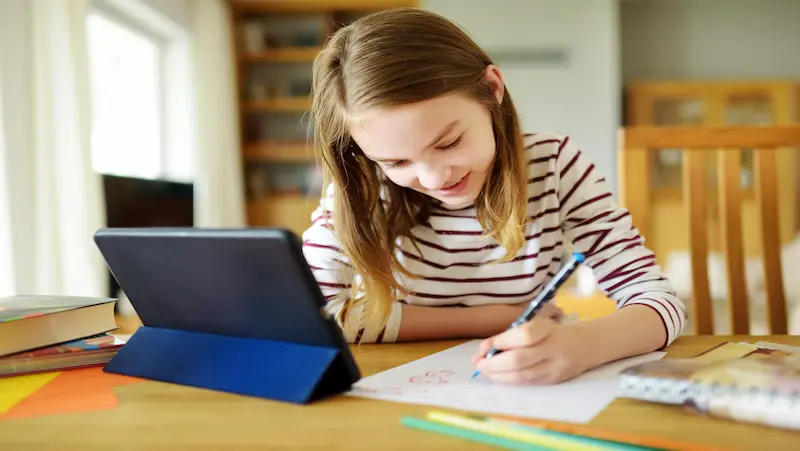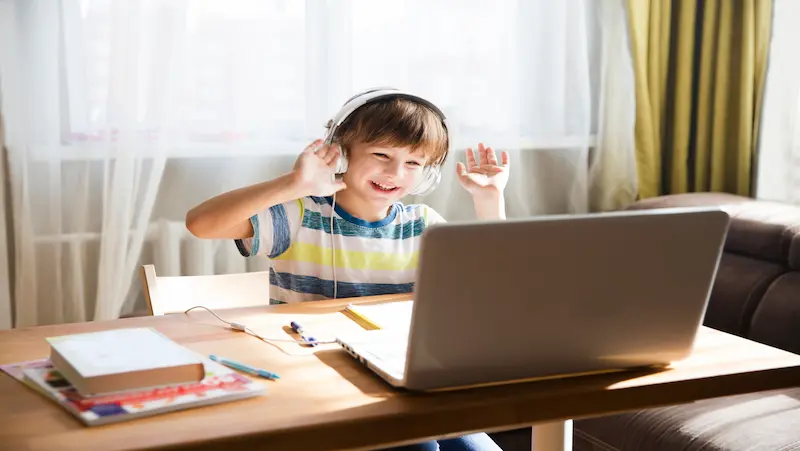In recent years, homeschooling has gained significant traction as an alternative education method that offers personalised learning experiences for children. As parents seek to tailor education to their child’s unique needs and interests, homeschooling has emerged as a viable option. However, there’s often a misconception that homeschooling may lead to isolation or a lack of social interaction for children. In this article, we will delve into the world of social activities within homeschooling, exploring the myriad ways parents can ensure their children enjoy a well-rounded social life while benefit from the flexibility of homeschooling. Home education offers a personalized and flexible approach to learning, allowing students to explore subjects at their own pace while fostering a strong sense of independence and curiosity.
Homeschooling has been recognized for its ability to provide tailored education, catering to individual strengths, interests, and learning styles. However, for children’s holistic development, it’s essential to incorporate social activities into their homeschooling journey. This guide aims to showcase the importance of these activities and provide practical insights for parents who wish to strike a balance between customized education and social interaction.
Table of contents
- Understanding the Impact of Social Activities on Homeschooled Kids
- Homeschooling social activities for kids
- 1. Local Homeschooling Support Groups: Nurturing Community Bonds
- 2. Co-op Learning Adventures: Collaborative Learning for Holistic Development
- 3. Organizing Homeschooling Playdates: Nurturing Social Skills and Friendships
- 4. Sports and Physical Activities: Fitness and Teamwork Beyond the Classroom
- 5. Artistic Pursuits and Creative Workshops: Unleashing Creativity Through Art
- 6. Volunteering and Community Service: Instilling Values Through Giving Back
- 7. Educational Field Trips: Learning Beyond Four Walls
- 8. Book Clubs and Literature Circles: Inspiring the Love for Reading
- 9. Science and Nature Explorations: Curiosity in the Great Outdoors
- 10. Music and Performing Arts: Harmonizing Education and Creativity
- 11. Technology and Virtual Learning Communities: Connecting Beyond Physical Boundaries
- 12. Culinary Adventures: Cooking Up Life Skills
- 13. History and Heritage Experiences: Walking Through Time
- 14. Language Learning Groups: Embracing Cultural Diversity
- 15. Personal Development and Public Speaking: Finding Your Voice
- Conclusion
- Frequently Asked Questions (FAQs)
Understanding the Impact of Social Activities on Homeschooled Kids
Social interactions play a pivotal role in child development. These interactions foster communication skills, emotional intelligence, and the ability to collaborate effectively. While homeschooling offers a unique environment for one-on-one learning, it’s important to acknowledge the challenges of socializing in this context. Homeschooled children might miss out on the daily interactions that occur in traditional schools. However, this challenge also presents opportunities for creative socialization approaches.
Homeschooling social activities for kids
Homeschooling social activities for kids play a pivotal role in enriching their educational journey by offering a multifaceted platform for personal growth and interpersonal development. These activities transcend the confines of traditional classroom settings, providing young learners with unique opportunities to foster friendships, enhance communication skills, and cultivate a robust sense of community belonging. Engaging in a variety of creative and educational activities for kids is an essential aspect of homeschooling, fostering holistic development and a love for learning Some of them are listed below:

1. Local Homeschooling Support Groups: Nurturing Community Bonds
Joining local homeschooling support groups can bridge the gap between individualized learning and social engagement. These communities offer children the chance to connect with peers who share similar educational experiences. Moreover, parents benefit from shared resources, experiences, and expertise. Discovering and connecting with such groups in your area can be a transformative step in enhancing your child’s homeschooling journey.
2. Co-op Learning Adventures: Collaborative Learning for Holistic Development
Cooperative learning, commonly referred to as “co-op,” is an excellent strategy to promote socialization while embracing diverse subjects. Co-op activities involve a group of homeschooled children learning together, often with parents contributing their expertise. This approach not only fosters friendship but also exposes children to a wider range of knowledge and skills.
3. Organizing Homeschooling Playdates: Nurturing Social Skills and Friendships
Playdates aren’t just a fun pastime; they are crucial for developing social skills and building friendships. Organizing playdates allows children to practice communication, sharing, and conflict resolution in a relaxed setting. By ensuring that these playdates are structured and well-organized, parents can maximize their benefits.
4. Sports and Physical Activities: Fitness and Teamwork Beyond the Classroom
Physical education is often overlooked in homeschooling discussions. Yet, participating in sports and physical activities is essential for physical well-being and social development. Joining community sports teams or clubs exposes children to teamwork, discipline, and healthy competition.
5. Artistic Pursuits and Creative Workshops: Unleashing Creativity Through Art
Artistic pursuits, far from being confined to individual expression, serve as dynamic platforms for social interaction. Within this realm, creative workshops and events hold a special place, acting as bridges that connect children with shared interests. As young artists gather to explore their creativity, connections naturally flourish, cultivating bonds that stem from a mutual passion for artistic expression. In this environment, self-discovery is intertwined with the joy of collaboration, as budding talents exchange ideas, techniques, and inspirations. Homeschooling provides the perfect platform for kids to unleash their creativity through a wide array of art projects for kids, nurturing their self-expression and imaginative growth.
6. Volunteering and Community Service: Instilling Values Through Giving Back
Embedded within the homeschooling experience lies a golden opportunity to impart the significance of community service to children. Through engaging in volunteer activities, a powerful narrative of empathy and compassion unfolds, echoing the values that form the bedrock of a caring society. As young hearts reach out to make a positive impact, they not only touch the lives of others but also embark on a journey of self-discovery. These experiences awaken a profound understanding of the broader human experience, showcasing that even small actions can ripple outward, effecting change in ways that extend beyond the immediate horizon.
7. Educational Field Trips: Learning Beyond Four Walls
Educational field trips inject excitement and practicality into homeschooling. These outings provide hands-on experiences and opportunities to learn outside the traditional classroom environment. Planning and executing such trips within homeschooling groups can create lasting memories and lasting educational impressions.
8. Book Clubs and Literature Circles: Inspiring the Love for Reading
While reading is often seen as a solitary pursuit, its dimensions expand when integrated into the social fabric through book clubs and literature circles.These gatherings transform the act of reading into a communal experience, fostering shared engagement with literature. Within these groups, young readers not only explore the written word but also delve into discussions, analyses, and reflections that deepen their critical thinking and communication skills.
Utilizing a diverse collection of children’s books within homeschooling not only cultivates a love for reading but also enriches learning experiences, sparking curiosity and expanding young minds. Discover the best homeschooling books that provide invaluable guidance, practical tips, and insights for creating a successful and enriching educational journey tailored to your family’s needs.
9. Science and Nature Explorations: Curiosity in the Great Outdoors
Immersed in the realm of science and nature studies, hands-on exploration takes center stage. In the context of homeschooling, this dynamic approach gains momentum, granting children the freedom to dive into the natural world with unbridled curiosity. Through a tapestry of experiments, meticulous observations, and outdoor escapades, young learners unearth the secrets of the environment around them. Homeschooling offers a fantastic opportunity for kids to delve into captivating science projects for kids, igniting their curiosity and hands-on exploration of the natural world.
10. Music and Performing Arts: Harmonizing Education and Creativity
Within the captivating realm of music and performing arts, a myriad of opportunities for socialization unfurls. Engaging in homeschooling music or drama groups, in particular, transcends the confines of solitary practice, opening doorways to a vibrant community. As young talents unite, not only do artistic skills flourish, but also the seeds of confidence and camaraderie take root.
11. Technology and Virtual Learning Communities: Connecting Beyond Physical Boundaries

In our modern digital era, technology takes on a transformative role in nurturing virtual socialization. Within this realm, online homeschooling communities and forums emerge as potent platforms, linking children with peers across the globe. Here, geographic boundaries fade into insignificance as young minds converge to share experiences, ideas, and insights within the secure confines of a digital haven.
12. Culinary Adventures: Cooking Up Life Skills
Cooking and baking, far beyond the realm of mere meal preparation, emerge as vibrant avenues for imparting essential culinary skills, fostering a keen awareness of nutrition, and nurturing the values of teamwork. These activities don’t merely fill plates; they serve as dynamic platforms where learning seamlessly intertwines with the joys of creating something delectable. As young chefs wield spatulas and measure ingredients, they glean insights into measurements, techniques, and the science behind food.
13. History and Heritage Experiences: Walking Through Time
The journey of exploring history and heritage through immersive experiences is a profound endeavor that transcends traditional learning methodologies. By venturing into museums, cultural events, and interactive exhibits, learners are transported into the past, where history becomes a tangible and captivating narrative. These outings nurture an appreciation for the richness of human history while fostering social engagement and connectivity. Ultimately, the stories of our ancestors come alive through these experiences, and learners emerge with a deeper understanding of the world and their place within it.
14. Language Learning Groups: Embracing Cultural Diversity
Learning foreign languages is akin to unlocking a treasure trove of cultural richness and expansive perspectives. Engaging in language learning groups within the context of homeschooling not only imparts linguistic skills but also fosters a deep understanding of global diversity. Through the collaborative journey of acquiring a new language, children are not only introduced to new friends who share their curiosity but are also granted the opportunity to traverse the boundaries of their own familiarity, embarking on a journey that broadens their horizons in profound ways.
15. Personal Development and Public Speaking: Finding Your Voice
Building confidence through public speaking and presentations is a vital life skill. Homeschooling events that encourage public speaking provide children with a platform to share their ideas and perspectives.
Also,check out accredited online homeschool programs.
Conclusion
Homeschooling is a dynamic educational approach that caters to individual learning needs. By weaving social activities into the homeschooling fabric, parents can provide their children with a well-rounded education that nurtures not only academic growth but also social skills, emotional intelligence, and a sense of community. With a plethora of creative avenues available, homeschooling families can customize their approach to ensure their children thrive academically and socially, preparing them for a bright and interconnected future.
In conclusion, homeschooling activities play a pivotal role in shaping a well-rounded and tailored educational experience for students. The flexibility and personalized approach they offer empower parents and caregivers to create dynamic learning environments that cater to individual strengths, interests, and needs. By embracing a diverse range of activities, from interactive projects to real-world experiences, homeschooling fosters not only academic growth but also the development of essential life skills. As families continue to embark on this educational journey, the rich tapestry of homeschooling activities promises to nurture curiosity, ignite passion, and prepare students to confidently navigate the complexities of an ever-evolving world.
With BrightChamps, your child will receive a personalized learning experience that adapts to their pace and interests, preparing them not just for tests, but for a lifetime of curiosity, critical thinking, and success. Join us today and unlock your child’s full potential with the power of BrightChamps.
By, exploring the BrightChamps blog page, discover invaluable insights that can shape your children’s future through quality education.
Frequently Asked Questions (FAQs)
A1. Homeschoolers often make friends through local homeschooling support groups, co-op learning adventures, and extracurricular activities that align with their interests.
A2. Yes, there are online platforms like homeschooling forums, virtual clubs, and social networks designed to facilitate social interactions among homeschooling students.
A3. Some homeschooling social activities can count towards academic credits, especially if they involve subjects like physical education, community service, or arts and culture.
A4. If your child is hesitant to participate in social events, start with smaller gatherings, respect their comfort zone, and gradually expose them to social situations at their own pace.
A5. Homeschooling parents balance social activities and academics by creating a flexible schedule, integrating social events into the curriculum, and prioritizing both educational and social development for their children.


 We are an army of educators and passionate learners from BrightChamps family, committed to providing free learning resources to kids, parents & students.
We are an army of educators and passionate learners from BrightChamps family, committed to providing free learning resources to kids, parents & students.













